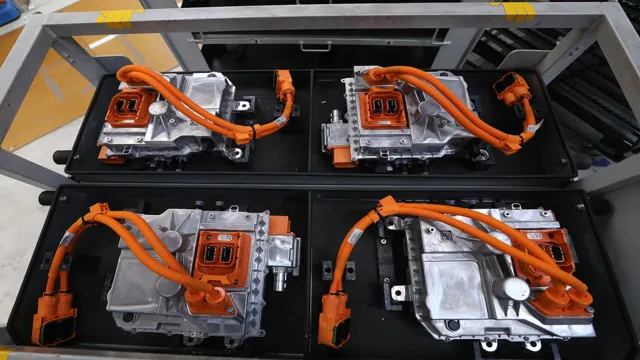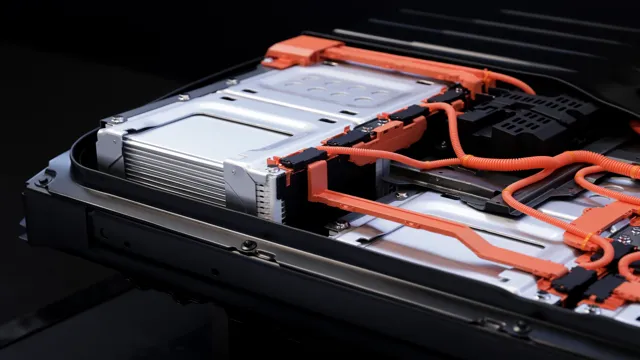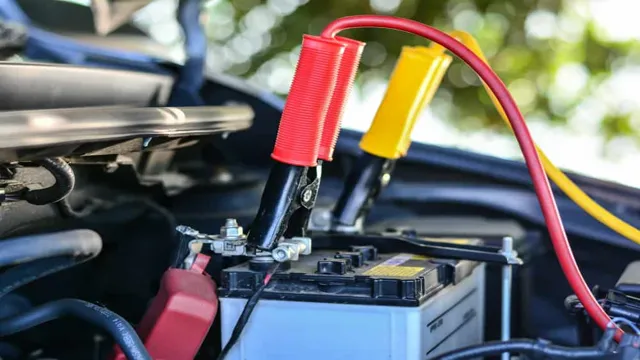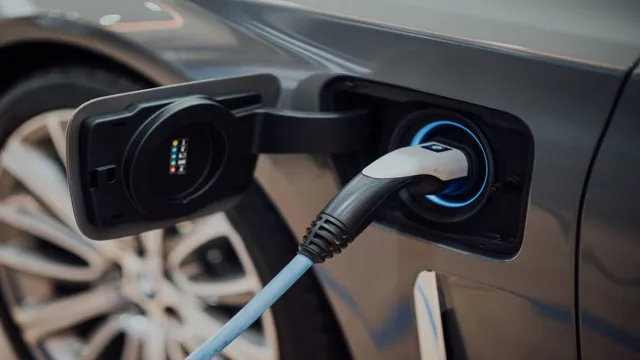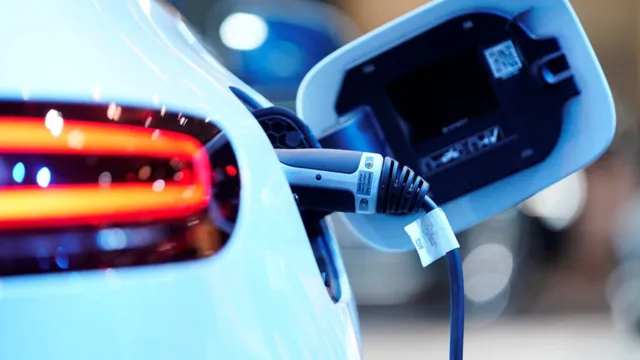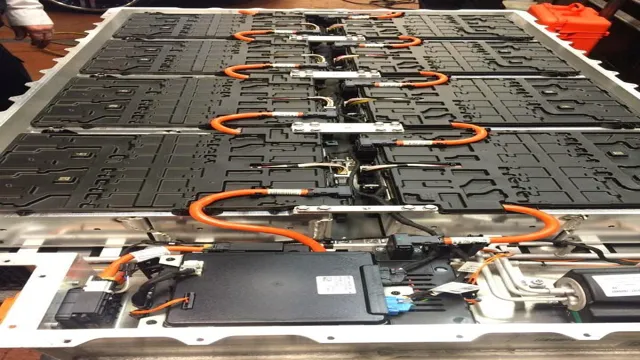Revving Up Change: A Guide to the Different Types of Electric Car Batteries
Electric cars are becoming more and more popular as people seek environmentally-friendly transportation options and governments implement incentives to encourage their adoption. However, one crucial element of electric cars is often overlooked: the battery. In fact, the type of battery used in an electric car can have significant implications for its performance, reliability, and cost.
This blog post will explore the different types of electric car batteries and what you should know about each of them. So, whether you’re considering buying an electric car or simply curious about how they work, keep reading to learn more.
Introduction
When it comes to electric cars, one of the most important components is the battery. The type of battery used in an electric car can greatly affect its performance, range, and cost. There are several different types of batteries used in electric cars, including lithium-ion, nickel-cadmium, and lead-acid.
Lithium-ion batteries are currently the most common type used in electric cars, as they are lighter, have a higher energy density, and have a longer lifespan compared to other battery types. However, nickel-cadmium batteries were once the standard for electric cars and are still used in some older models. Lead-acid batteries are typically used in lower-end electric cars and have a shorter lifespan and lower energy density compared to lithium-ion batteries.
Ultimately, the type of electric car battery used depends on the specific needs and budget of the consumer. But as more advancements are made in battery technology, we can expect to see even more efficient and cost-effective options in the near future.
Why Electric Car Battery Type Matters
Electric Car Battery Type Electric cars have been gaining immense popularity in recent times and have become one of the primary alternatives to conventional gasoline-fueled cars. However, one aspect that often gets overlooked when it comes to electric cars is the battery type. The battery type used in an electric car can have a significant impact on its performance, range, and overall cost.
The two primary types of batteries used in electric cars are lithium-ion and nickel-metal hydride. While both batteries have their advantages and disadvantages, the choice ultimately boils down to the user’s preference and requirements. However, it’s essential to understand the differences between the two types of batteries to make an informed decision when purchasing an electric car.
Factors Affecting Battery Type
When it comes to choosing the right battery for a device, there are several factors that can influence your decision. One of the most important is the type of battery itself. There are many different types of batteries available on the market today, each with its own set of advantages and disadvantages.
Some of the most common types of batteries include alkaline batteries, lithium-ion batteries, and nickel-metal hydride batteries. The type of battery you choose will depend on a variety of factors, including the device it will be used in, how often you use the device, and how long you need the battery to last. As you consider these factors, it’s important to keep in mind that different batteries will perform differently under different conditions.
So it’s important to choose a battery that is well-suited to your specific needs.
Types of Electric Car Batteries
When it comes to electric car batteries, there are several types to choose from. The most popular type is the lithium-ion battery, which is known for its high energy density and relatively low cost. However, there are other types of batteries, such as nickel-metal hydride and lead-acid batteries, which are still used in some electric vehicles.
Nickel-metal hydride batteries are known for their durability and reliability, while lead-acid batteries are known for their low cost and ability to withstand extreme temperatures. Ultimately, the type of electric car battery you choose will depend on factors such as cost, performance, and charging time, among others. Regardless of the type of electric car battery you choose, it is important to make sure it is properly maintained and charged to ensure optimal performance and longevity.
Lithium-ion
Lithium-ion When it comes to electric car batteries, there are several different types to choose from. One of the most commonly used types is the lithium-ion battery. These batteries are used in everything from smartphones to electric vehicles, and they are known for their high energy density and long lifespan.
Lithium-ion batteries are made up of cathodes, anodes, and electrolytes, and they work by allowing charged lithium ions to move back and forth between the cathode and anode. This movement of ions creates the electrical energy that powers the car. While lithium-ion batteries have many benefits, they also have some drawbacks.
For example, they can be expensive to manufacture, and they are sensitive to high temperatures. However, despite these drawbacks, lithium-ion remains one of the leading types of electric car batteries on the market today.
Nickel-metal Hydride
One of the types of electric car batteries that is commonly used is the nickel-metal hydride (NiMH) battery. This type of battery is known for its high energy density and long cycle life, making it a popular choice for hybrid vehicles. The NiMH battery uses a chemical reaction between nickel oxyhydroxide and a metal hydride to generate electricity.
It is a more environmentally-friendly option than traditional lead-acid batteries, as it does not contain toxic materials. However, one drawback of the NiMH battery is that it is heavier and takes up more space than lithium-ion batteries. Nonetheless, with its established track record, the NiMH battery remains a reliable and sustainable choice for many electric car manufacturers.
Lead-acid
Lead-acid batteries are the oldest and the most widely used type of batteries in electric cars. They are known for being reliable and affordable, but they are also heavy and have a low energy density. Lead-acid batteries consist of lead plates and lead oxide plates submerged in an electrolyte solution of sulfuric acid and water.
When the battery is charged, the plates react to produce lead sulfate and water. When the battery is discharged, the reaction is reversed, and the lead sulfate is converted back into lead and lead oxide, releasing electrical energy. Lead-acid batteries have a relatively short lifespan and need to be replaced every few years, but they are still widely used in smaller electric vehicles like golf carts and forklifts.
However, they are being gradually phased out in favor of more advanced battery technologies like lithium-ion.
Advantages & Disadvantages of Each Battery Type
When it comes to electric car battery types, there are several options to consider. One of the most common is lithium-ion batteries, which offer a high energy density and longer lifespan than other types. However, they are also more expensive and can pose safety concerns, such as the risk of fire.
Another option is nickel-metal hydride batteries, which are less expensive and have a longer lifespan than some other types, but they are also heavier and less efficient. Lead-acid batteries are another option, but they are less commonly used in electric cars due to their low energy density and shorter lifespan. Ultimately, the choice of battery type will depend on factors such as cost, performance, and safety.
Regardless of the type chosen, it is important to properly maintain and care for the battery to ensure optimal performance and longevity.
Lithium-ion
Lithium-ion batteries are the most commonly used batteries in electronic devices due to their high energy density, low self-discharge rate, and long lifetimes. These batteries are lightweight, rechargeable, and have a low memory effect, meaning they don’t lose their maximum charge capacity if recharged before fully depleting. Additionally, lithium-ion batteries are relatively safe to use compared to other batteries as they are less likely to leak or explode.
However, one disadvantage of lithium-ion batteries is their sensitivity to high temperatures, which can cause them to overheat and even explode in certain circumstances. Additionally, lithium-ion batteries are more expensive than other types of batteries, making them less accessible to consumers on a tight budget. Despite their drawbacks, lithium-ion batteries are still the choice of most electronic devices manufacturers due to their numerous advantages over other battery types.
Nickel-metal Hydride
Nickel-metal hydride (NiMH) batteries are a popular choice for electronic devices due to their low cost and ability to hold a charge for a long period of time. One of the biggest advantages of NiMH batteries is that they are more environmentally friendly than other types of batteries, such as Alkaline batteries. They can be recharged up to 1000 times, making them a much more economical choice in the long run.
However, one of the disadvantages of NiMH batteries is that they have a higher self-discharge rate than other types of batteries. This means that they can lose their charge over time, even when not in use. Additionally, NiMH batteries have a lower energy density than other types of batteries, meaning that they are not as efficient at storing energy.
Overall, NiMH batteries are a good choice for those looking for an affordable and environmentally friendly option, but they may not be the best choice for devices that require a higher level of power.
Lead-acid
Lead-acid batteries are one of the oldest and most common types of batteries. They are widely used in the automotive industry and for backup power storage due to their low cost and reliability. However, lead-acid batteries have their advantages and disadvantages.
One of the benefits of lead-acid batteries is that they are relatively inexpensive, making them ideal for large-scale applications. They are also highly reliable and can deliver a large amount of power instantly. On the downside, lead-acid batteries are heavy, and their capacity decreases over time.
They also emit gases during charging, which can be dangerous if not properly vented. Additionally, lead-acid batteries are not very environmentally friendly and require proper disposal to avoid pollution. Overall, lead-acid batteries have their pros and cons, and it’s important to consider them carefully when choosing a battery for your application.
Conclusion
In the world of electric cars, the type of battery you choose is crucial. It’s not just a matter of getting from point A to point B, but of doing so sustainably and with maximum efficiency. Whether you go for lithium-ion, nickel-metal hydride, or some other option, the most important thing is to understand your needs and make an informed decision.
And if all else fails, just remember: no matter the battery type, electric cars are always charged and ready to go!
FAQs
What are the different types of batteries used in electric cars?
There are four main types of batteries used in electric cars: lead-acid, nickel-metal hydride (NiMH), lithium-ion (Li-ion), and solid-state batteries.
What is the range of an electric car battery, and does it depend on the type of battery?
The range of an electric car battery varies depending on the type of battery and the specific car model. Li-ion batteries generally offer the longest range, with some models able to travel over 300 miles on a single charge.
Can you replace the battery in an electric car, and what is the cost?
Yes, you can replace the battery in an electric car, but the cost will vary depending on the make and model of the car and the type of battery used. Some estimates suggest that battery replacement can cost between $5,000 and $10,000.
How long does it take to charge an electric car battery, and does it depend on the type of battery?
The time it takes to charge an electric car battery depends on the type of battery and the charging method used. Some batteries can be charged in as little as 30 minutes, while others may take several hours. Fast charging is generally only available for Li-ion batteries.
